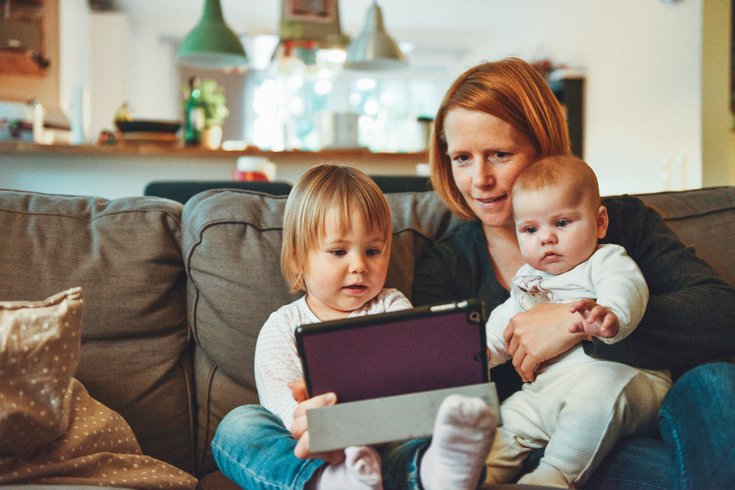
August 24, 2023
 Alexander Dummer/Unsplash
Alexander Dummer/Unsplash
Babies and toddlers who were exposed to one to four hours of screen time each day, or more, experienced developmental delays, according to a recent study.
While handing a child a phone or tablet to calm them down may seem harmless, giving babies and toddlers more access to screens may hinder their development.
According to new research, 1-year-olds who were exposed to between one and four hours of screen time each day experienced developmental delays in communication, problem-solving, fine motor skills (movements using small hand and wrist muscles) and social skills by age 2.
Babies who spent four hours or more per day on screens were nearly five times more likely to have underdeveloped communication skills and nearly twice as likely to have underdeveloped fine motor skills and social skills. By age 4, issues with communication and problem-solving remained.
Researchers at Tohoku University in Japan analyzed the screen habits of nearly 7,100 children using survey data from their mothers. Developmental delays in communication, problem-solving, fine motor skills, gross motor skills (using muscles for large movements) and social skills were evaluated when they reached 2 and 4 years old. The study was published in the Journal of the American Medical Association Pediatrics on Monday.
Delays were seen in all of the aforementioned skill sets. Though researchers concluded that the amount of time a child spends on a screen is important to monitor, they also concluded that the quality of the screen time can impact development. For example, even though excessive screen time is associated with worse language skills, screen time spent on educational programs is associated with better language skills. The study suggests that parents limit a child's screen time spent on programs that don't encourage development.
"Kids learn how to talk if they're encouraged to talk, and very often, if they're just watching a screen, they're not having an opportunity to practice talking," Dr. John Hutton, associate professor of general and community pediatrics at Cincinnati Children's Hospital Medical Center, told CNN. "They may hear a lot of words, but they're not practicing saying words or having a lot of that back-and-forth interaction."
Excessive screen time in children has been linked to increased risk of high blood pressure, obesity, high blood sugar, diabetes, stroke and heart disease, according to a study published earlier this year. Previous research shows that children who spend multiple hours of the day on electronic devices are more likely to have trouble sleeping, struggle in school and be more sedentary and overweight.
Too much time spent watching television, using tablets and cell phones and playing video games can lead to issues with memory and attention, as well as the ability to regulate emotions. Face-to-face interaction with children as they use screens may offset some of the negative effects associated with excessive screen use, though it's important for babies and toddlers to have plenty of one-on-one screenless attention in order to develop communication, language and social skills.
"Babies at 1 year of age need face-to-face interaction," Dr. Jennifer Ashton, an OB-GYN and ABC News' medical correspondent, told Good Morning America. "They need that for their social development. They need that for their language development and you can't sub that out with a screen. I think it's really important to remember that this is age-dependent and it's based on the content, not just the quantity. Children can learn with screens. It's just a matter of what the content is and how much they're getting."
The American Academy of Pediatrics discourages media use, except for video-chatting, among children under 18 months old. For those between 18 and 24 months old, screens showing educational programs can prove beneficial to development.
Scheduling plenty of non-screen playtime with young children, especially babies, is important in reducing screens' developmental impacts and forming healthy habits with electronics. Unstructured playtime is important for building creativity and developing social skills, according to Johns Hopkins All Children's Hospital.
Adults can also encourage healthy viewing behaviors by not excessively using screens themselves and turning devices off for family meals and outings. This can discourage passive, aimless screen viewing, according to the American Academy of Child & Adolescent Psychology.